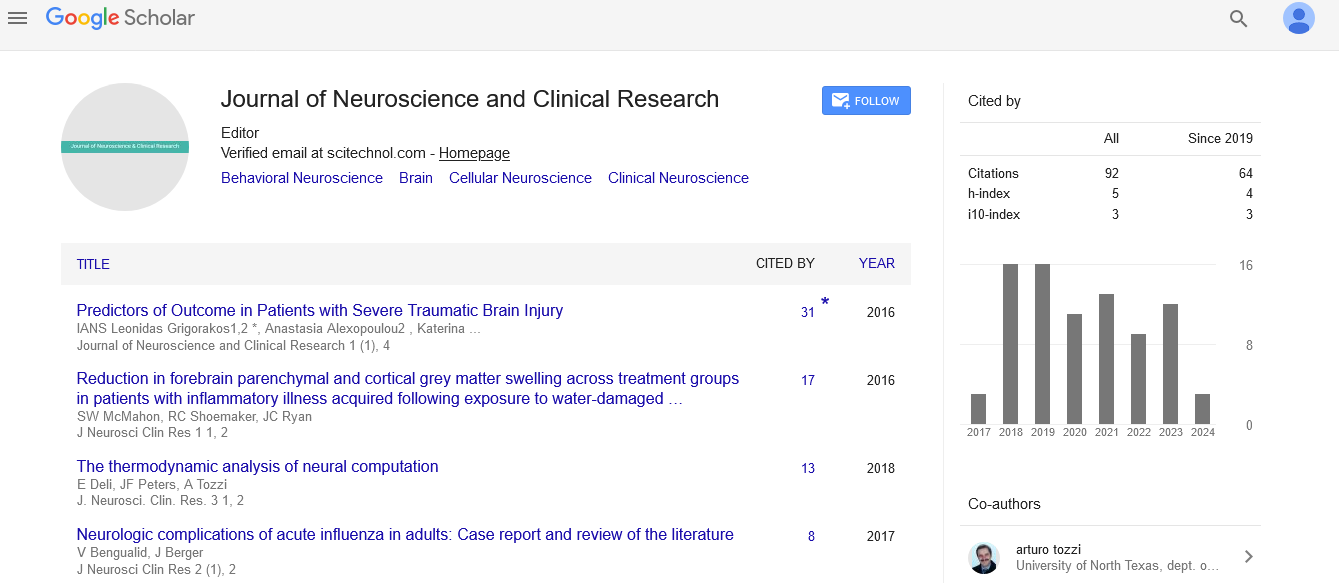Reading and Writing in a Diglossic Context: A Multifaceted Perspective
Aula Khatteb Abu-Liel
University of Haifa, Haifa, Israel
: J Neurosci Clin Res
Abstract
Arabic is considered a classical case of diglossia because conventionally, one form of Arabic is spoken (SA) and another is used in the domain of written language (MSA). In the recent past, globalization of English-based technology, together with the absence of Arabic supporting keyboards, had resulted in the reliance on Latin script as the main writing system when communicating through computers (CMC). This writing was known as ‘Arabizi’, which represents Spoken Arabic (SA). The advent of Arabic supporting software has allowed the writing of SA in Arabic letters, but has not completely eradicated Arabizi. Although the use of Arabizi today is less ubiquitous than it was half a decade ago, its effects on the cognitive processes involved in literacy are scientifically interesting. The present chapter explores the way that Arabizi affected reading, writing, and personal and social dynamics in a sample of Arabic-speaking adolescents in 2014. We focused on three areas of inquiry: The first aimed to provide a description of writing practices, perceptions, and attitudes for the two writing systems, Arabizi and MSA. The second examined literacy skills and abilities in MSA and Arabizi. And the third tried to evaluate the stability of the Arabizi orthography in order to evaluate to which instance?? Extent? it is standardized.
Biography
Aula Khatteb Abu-Liel got her Phd degree from the department of Learning disorders, in Haifa university. Aula started her career as a teacher in special education, then she worked at the laboratory for diagnosing learning disorders at Haifa university. As an outstanding student for MA degree she got the Werner Otto Scholarship. Further as an outstanding student in the Phd degree, she got a grant from the Edmond J. Safra Brain Research Center for the Study of Learning Disabilities, in addition to the Feitelson prize. Since 2010 had been working as a lecturer at Oranim Academic College and at the Arab College of Education. In 2022 she Began her postdoctoral studies under the guidance of Prof. Elinor Saiegh-Haddad at Bar-Ilan University. Her researches presented at the International research workshop of the Israel science foundation, 2018, Research Council of Canada, 2020 and conference Washington, DC- 2021.
 Spanish
Spanish  Chinese
Chinese  Russian
Russian  German
German  French
French  Japanese
Japanese  Portuguese
Portuguese  Hindi
Hindi 